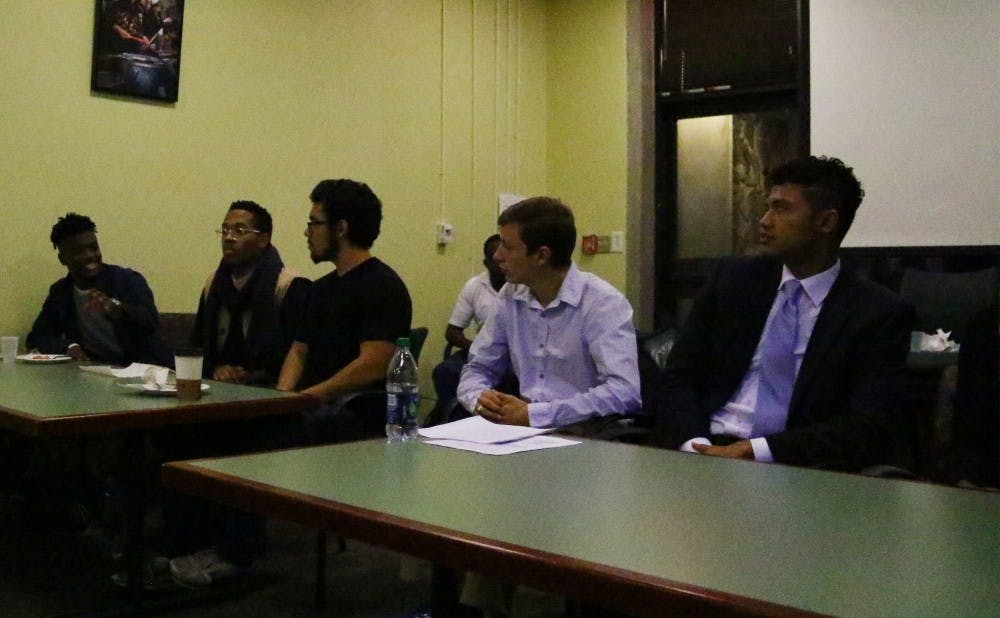The Alpha Alpha Chi chapter of Phi Beta Sigma fraternity held an event Monday to discuss microaggressions in the Duke community and beyond.
“Institutionalized: Living with Microaggressions” was held as part of the fraternity’s Sigma Week—which this year is loosely themed after rapper Kendrick Lamar’s 2015 album “To Pimp a Butterfly”—and featured a panel composed of student leaders from cultural groups across campus, including the Black Student Alliance and the Duke chapter of the National Association for the Advancement of Colored People. The panel was moderated and facilitated by Sean Palmer, assistant director of the Mary Lou Williams Center for Black Culture.
“I had classmates interrogated by TAs who thought they were too dumb to write the papers they wrote,” Palmer said, providing an example of a microaggression as an introduction to the panel discussion.
The event began with a video featuring one of the creators of the term “microaggression,” Derald Wing Sue, a psychologist and professor at Columbia University. The video explained that microaggressions are the “slights, indignities, put-downs and insults that minorities experience daily,” though they often come in the form of misguided compliments from people who see themselves as unbiased and moral. Those who frequently experience microaggressions include women, people of color and members of the LGBTQ community.
Following the video, panelists introduced themselves and gave examples of their experiences with microaggressions. Junior Edgeri Hudlin, education chair of the Duke chapter of the NAACP, explained that early on in his Duke career, a professor returned to him a paper with comments complimenting him on his English based solely on his “foreign-sounding” name, despite the fact that he grew up in the U.S. and speaks English as his first language.
Senior Tony Lopez, president of the Duke chapter of La Unidad Latina, explained that microaggressions are part of a problem larger than individual one-on-one interactions.
“It’s a symptom, but if you get rid of the symptom the illness is still there,” he said in reference to institutionalized racism.
Other panelists spoke about their Duke-specific experiences with racism and aggressions, particularly in relation to the University’s status as a predominantly white institution. Several noted that members of the Duke community often try to distance themselves from racism.
“Lots of people here like to say ‘smart people can’t be racist,’” explained sophomore Victoria Prince, community chair of the Students of the Caribbean Association.
The superficial appearance of diversity at Duke was also a topic of discussion, as various panelists mentioned feeling trivialized as minorities who are only present at the University to fill quotas. Lopez asked if the role of minorities is only to present a sort of “visual buffet” on campus.
Senior Cody Parrott, a member of Duke Students for Justice in Palestine, said another issue related to microaggressions is that white people often want to avoid shouldering the blame for past racism.
“We want to be outside the problem,” he said.
Many speakers, including Parrott, mentioned that in order to remedy the situation, the problem must be addressed by all parties—both those negatively affected by microaggressions and those who perpetrate them.

